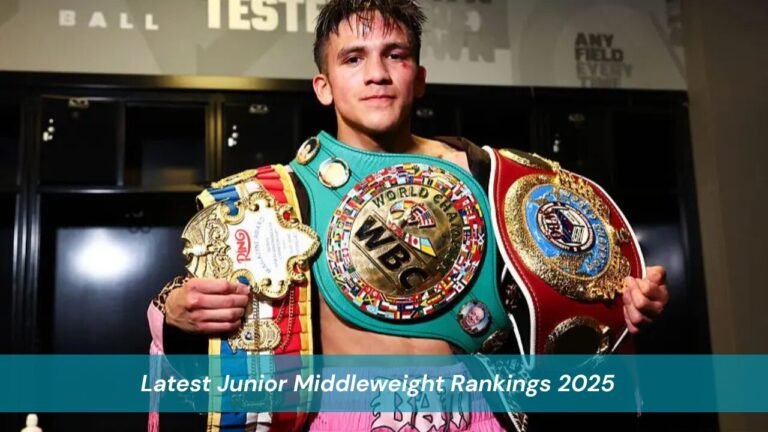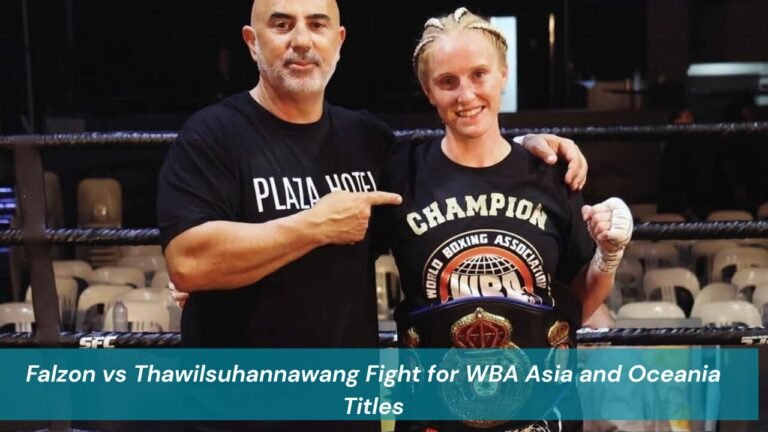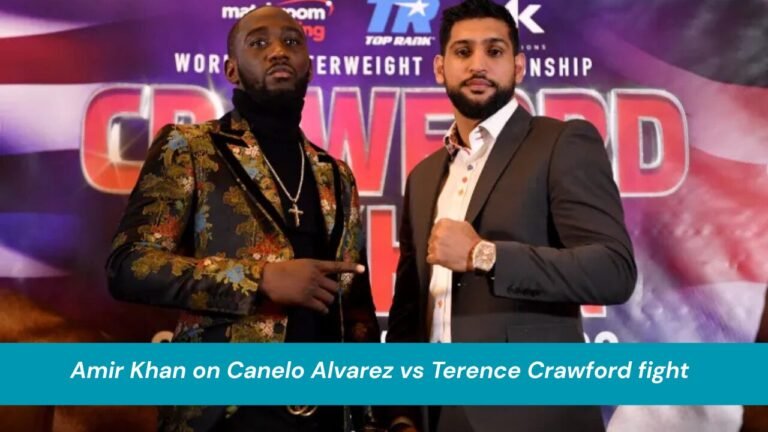The potential Jake Paul vs Anthony Joshua fight has become one of the most surprising talking points in modern boxing. On the surface, the matchup seems almost absurd: a YouTuber-turned-boxer with only a handful of professional bouts against an Olympic gold medalist and former unified heavyweight world champion. Yet, in today’s sports and entertainment climate, where crossover events dominate headlines and generate massive pay-per-view revenue, the idea of Paul stepping into the ring with Joshua is not only possible but already being seriously discussed by promoters. However, the road to making this fight a reality is filled with obstacles. From regulatory resistance and safety concerns to logistical hurdles and reputational risks, several factors could derail what would be one of the most controversial fights in boxing history.
To understand these challenges fully, it is necessary to examine the regulatory landscape, health and safety implications, physical readiness of both fighters, promoter dynamics, and the shifting public perception of such an event. Unlike traditional superfights, this crossover clash raises issues that go beyond money and entertainment value. The Jake Paul vs Anthony Joshua fight is more than a matter of two boxers agreeing to terms; it is a test of how far the sport of boxing is willing to stretch its boundaries for spectacle.
Key Takeaways
- Regulatory hurdles in the UK make the Jake Paul vs Anthony Joshua fight unlikely under standard rules.
- Safety concerns are significant due to Joshua’s heavyweight power and Paul’s limited experience.
- Physical readiness and recovery timelines, especially for Joshua post-surgery, add uncertainty.
- Financial incentives clash with sporting integrity, creating reputational risks for promoters and fighters.
Regulatory and Sanctioning Hurdles
The most immediate obstacle to staging this fight is regulatory approval. In the United Kingdom, where Anthony Joshua has built his career and where boxing enjoys strict oversight, the British Boxing Board of Control (BBBoC) is unlikely to sanction such a bout under normal rules. The weight, skill, and experience difference between Paul and Joshua is vast, and regulators have a duty to ensure fights are at least somewhat competitive. For the BBBoC, allowing a fighter with limited professional experience like Paul to face a former world champion at heavyweight could be considered unsafe and irresponsible. Reports have already suggested that the BBBoC is resistant to the idea, which is why promoters have floated the possibility of moving the fight to the United States.
In the U.S., state commissions vary in their rules, and promoters have often turned to venues such as Las Vegas, Texas, or Florida when faced with hurdles in other jurisdictions. Holding the fight in America would sidestep the BBBoC, but it introduces another layer of complexity. For Joshua, fighting outside the UK means potentially losing the home advantage and fan base he commands in stadiums like Wembley. For Paul, fighting in the U.S. might be preferable since it is his strongest market, but the perception of evading British regulatory scrutiny could add fuel to critics who argue that the fight is nothing more than a money grab.
Safety and Health Concerns
Perhaps the most pressing concern is fighter safety. Anthony Joshua is a heavyweight knockout artist with one-punch power, while Jake Paul is a cruiserweight at best. Trainers and former champions have already expressed alarm at the thought of Paul stepping into the ring with Joshua. Ben Davison, Joshua’s current trainer, has publicly dismissed the matchup, stating that it is unsafe and could not be sanctioned responsibly. Davison’s perspective carries weight, as trainers are often tasked with protecting fighters not only from opponents but from themselves and the business of boxing.
Former champions such as Carl Froch and Amir Khan have also spoken out, warning that Joshua could seriously injure Paul in such a fight. Froch in particular has been outspoken about the danger of letting an inexperienced fighter face a man with Joshua’s pedigree, suggesting that a knockout could lead to catastrophic consequences. These concerns are not simply hyperbole designed to dissuade fans. The reality is that boxing is already under scrutiny for head injuries and long-term brain damage. A crossover fight that results in serious injury could damage the credibility of the sport as a whole.
Physical Condition and Timing
Another obstacle is timing and physical readiness. Anthony Joshua is recovering from elbow surgery after his shocking knockout loss to Daniel Dubois in the summer of 2024. While his promoter Eddie Hearn has said that Joshua could return to the ring in early 2026, there is no guarantee that his rehabilitation will be smooth or that he will be in fighting condition by then. At 35 years old by the time of the proposed bout, Joshua is no longer in the prime of his career.
Jake Paul, on the other hand, has been building momentum. His recent win over Julio César Chávez Jr. elevated his credibility within the boxing community, at least in terms of proving he can handle a legitimate, experienced professional opponent. Unlike Joshua, Paul is healthy, active, and continuously fighting to build his resume. Ironically, this could play into the promotional narrative that Paul is taking on Joshua at the right time—when Joshua is vulnerable and looking for a major payday to close out his career. Still, Joshua’s recovery timeline remains a question mark. If he cannot commit to a firm date, the entire fight negotiation process could stall indefinitely.
Promotional and Legacy Considerations
Even if regulatory approval and health factors are addressed, the promotional landscape introduces further complications. Eddie Hearn, who has promoted Joshua’s career from the beginning, has acknowledged that there is a strong chance the fight could happen in early 2026. However, he has also described it as a dangerous stunt that could backfire. From a business perspective, the fight would generate immense revenue. Pay-per-view sales would likely be historic, driven by the curiosity factor and the crossover appeal. Yet from a legacy perspective, Joshua risks damaging his reputation by taking the fight at all.
Joshua is already criticized for his losses to Andy Ruiz Jr., Oleksandr Usyk, and Daniel Dubois. Facing a YouTuber-turned-boxer like Jake Paul could be seen as a desperate cash grab rather than a meaningful step in his career. Should Joshua win, critics will argue it was expected and carries no merit. Should he lose, his entire legacy as a serious fighter would be shattered. For Paul, on the other hand, the upside is enormous. A loss to Joshua would not harm his career much, as he could claim he dared to face a heavyweight legend. A win, however unlikely, would instantly make him one of the most famous fighters in history.
Public Perception and Narrative Risks
Public perception plays a significant role in whether this fight can be successfully marketed. Hardcore boxing fans have long resented Jake Paul’s presence in the sport, arguing that his celebrity status undermines boxing’s traditions. At the same time, Paul’s ability to draw mainstream attention has undeniably brought new eyes to the sport, especially younger audiences who may not otherwise watch boxing. The narrative of a YouTube star facing a former world champion is both a promotional dream and a reputational nightmare.
Adding to the drama are comments from figures like Tyson Fury, who has shockingly predicted that Jake Paul could knock out Anthony Joshua. Fury’s comments were likely designed to stir the pot, but they have already added fuel to the debate. If influential voices in the boxing community begin to treat the fight as a legitimate possibility, public demand could override the doubts of regulators and trainers. However, this same circus-like atmosphere risks reducing boxing to a spectacle rather than a sport, something purists argue is already happening.
The Weight Disparity Challenge
One element that complicates this fight even further is the weight disparity. Jake Paul fights at cruiserweight, typically around 190–200 pounds. Anthony Joshua is a natural heavyweight who walks around at 240 pounds or more. In combat sports, weight divisions exist for a reason: the physical advantage of a much larger fighter can be insurmountable. Even if Paul were to bulk up, he would likely sacrifice speed and endurance, while Joshua would retain his power advantage. This mismatch alone could deter sanctioning bodies and commissions from approving the bout, especially if it is contested under standard professional rules.
Financial Incentives Versus Sporting Integrity
At the heart of this entire discussion lies the tension between money and sporting integrity. On one hand, the financial incentives are staggering. Pay-per-view numbers could rival or surpass those of Floyd Mayweather’s bout with Conor McGregor, which generated over $600 million in revenue. Promoters, broadcasters, and the fighters themselves stand to make fortunes. On the other hand, the fight risks being perceived as a mockery of professional boxing, especially if it results in a predictable or dangerous outcome.
For governing bodies like the BBBoC, approving the fight would mean endorsing a spectacle that undermines competitive integrity. For promoters like Eddie Hearn and Nakisa Bidarian, pushing the fight means balancing profit against the reputational risk of contributing to what could be remembered as a low point in the sport.
FAQs
Could the Jake Paul vs Anthony Joshua fight happen in the UK?
It is unlikely. The British Boxing Board of Control has expressed reluctance to sanction such a mismatch due to safety and regulatory concerns. Promoters are already considering the United States as an alternative venue.
Is Anthony Joshua healthy enough to fight Jake Paul soon?
Joshua is still recovering from elbow surgery following his loss to Daniel Dubois. While his promoter has suggested a 2026 return, his readiness remains uncertain until he completes rehabilitation.
Why is the fight considered dangerous for Jake Paul?
The size and power difference is significant. Joshua is a natural heavyweight with knockout power, while Paul usually fights at cruiserweight. Trainers and former champions warn that the risk of serious injury is real.
Would this fight damage Anthony Joshua’s legacy?
Possibly. Beating Jake Paul would add little to Joshua’s boxing record, but losing would severely harm his reputation. For Paul, however, simply sharing the ring with Joshua boosts his profile regardless of the result.
Conclusion
The Jake Paul vs Anthony Joshua fight remains one of the most intriguing yet problematic potential matchups in modern boxing. On paper, the obstacles seem overwhelming. Regulatory bodies in the UK are unlikely to sanction the fight, forcing promoters to consider alternative venues in the United States. Trainers and former champions have raised serious concerns about the safety of such a matchup, particularly given Joshua’s size and power advantage. Joshua’s recovery from surgery and uncertain timeline add another layer of unpredictability. Promoters are caught between the promise of enormous financial returns and the risk of damaging the sport’s credibility. Meanwhile, public opinion is divided between those who see the fight as a fascinating crossover event and those who view it as a circus.
Ultimately, whether this fight happens will depend on how much the boxing industry is willing to compromise its traditions for profit. If regulatory bodies stand firm, the fight may never materialize. But if promoters and broadcasters find a jurisdiction willing to approve it, the fight could very well take place in early 2026. Until then, the obstacles remain significant, and the debate over whether the fight should even happen continues to rage.




